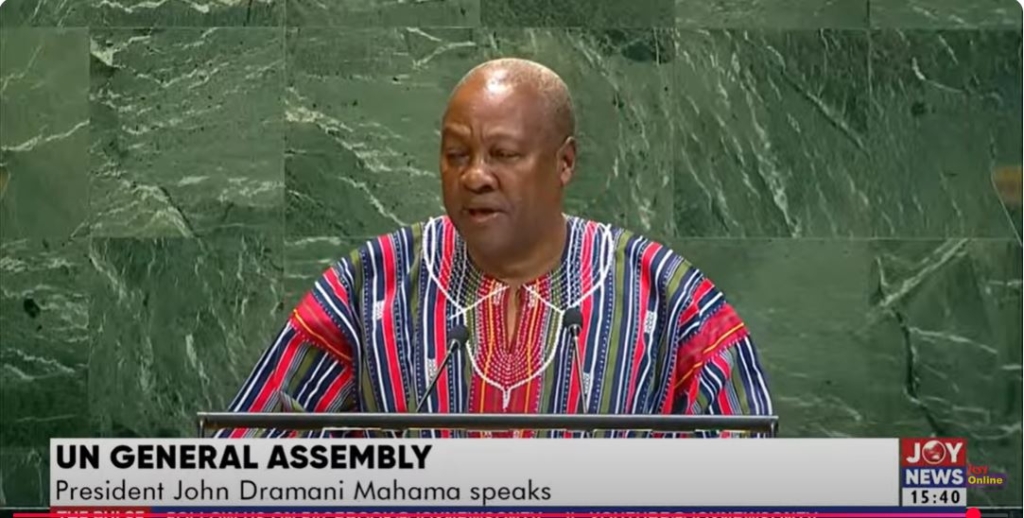President John Dramani Mahama has called for urgent reforms to the United Nations Security Council, insisting that veto power should not be the exclusive preserve of five nations.
He argued that the current arrangement, rooted in the post-World War II order, is outdated and unfairly concentrates power in the hands of a few countries.
Speaking at the United Nations General Assembly on Thursday, September 25, President Mahama said, “veto power should not be restricted to five nations, nor should it be absolute. There must be a mechanism for the General Assembly to challenge a veto. No single nation should be able to exercise an absolute veto to serve its own interests in a conflict.”
READ ALSO: Full text: Mahama’s address at the 80th United Nations General Assembly meeting
He stressed that if equality were truly upheld, Africa, with its 54 member states, would have at least one permanent seat on the Security Council.
“The most powerful post-World War II nations are still being rewarded with an almost totalitarian guardianship over the rest of the world. And yet, the first sentence in Chapter 2, Article 1 of the UN Charter declares that ‘The Organization is based on the principle of the sovereign equality of all its members,’” he said.
Drawing on the words of Nelson Mandela, who in 1995 urged the UN to “reassess its role, redefine its profile, and reshape its structures,” President Mahama said little progress had been made three decades later.
“Today, we African leaders are still making the same request: for a permanent seat on the Security Council, with the power of veto. So, I ask again: if not now, then when?” he declared.
Beyond Security Council reform, President Mahama also demanded a reset of the global financial architecture, which he described as being rigged against Africa.
Additionally, he called for greater African representation and decision-making power within international financial institutions.
DISCLAIMER: The Views, Comments, Opinions, Contributions and Statements made by Readers and Contributors on this platform do not necessarily represent the views or policy of Multimedia Group Limited.
DISCLAIMER: The Views, Comments, Opinions, Contributions and Statements made by Readers and Contributors on this platform do not necessarily represent the views or policy of Multimedia Group Limited.

